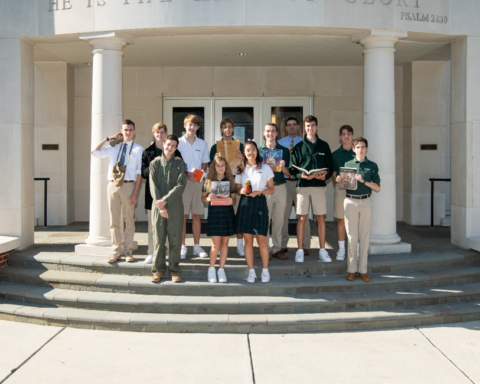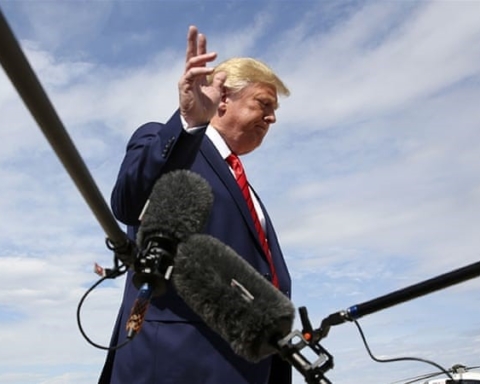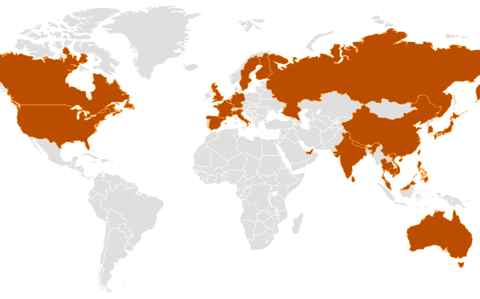The newest conflict between Iran and the United States has roots to a long simmering distrust between the two countries. This situation is not that different than past disputes except Iran has shown an increasing effort to kill Americans and cause disruption to U.S. presence in the Middle East. In the span of one month, the U.S. Embassy was attacked which resulted in a targeted drone strike on an Iranian terrorist, but the retaliation did not stop there. Iran’s inaccurate airstrikes on U.S. stationed troops resulted in a plane accident. These chronological events have brought the world to question: what will the future relationship of the U.S. and Iran look like, and will there be another retaliation?
The most recent dispute began when an American was killed by Iranian backed militants, and the U.S. Embassy in Iraq was attacked by similar militias protesting “Death to America.” United States President Donald Trump sent more troops to the Middle East as additional help and to prevent further tensions. Wesleyan freshman Alexander Glover said, “I think sending more troops to Iraq was a decisive measure that was necessary because the U.S. Embassy was already under siege with the protestors out front and having that additional support of U.S. troops creates a presence of ‘We are here, these troops are here, and we are ready for whatever may come’ if Iran chooses to move further.”
President Trump decided the attack on the Embassy warranted an increased response which led to the killing of a senior Iranian General Qasem Soleimani. After ongoing months of violence by Iranian militias, President Trump issued the airstrike to stop a war and prevent further violence orchestrated by Soleimani. The murder of this Iranian terror mastermind was carried out by the use of an American drone at the Baghdad International Airport on Jan. 3. Social Sciences Department Chair Ted Russell said, “I think it is hard to say what is the right way to carry out an assassination. The powers to be in the U.S. apparently felt like this was the opportunity to do it, and when an opportunity presents itself to get the guy they have targeted as a threat, it is hard to pass up.” On the other hand, Majid Takht Ravanchi, Iran’s United Nations ambassador, called the killing of Soleimani an act of war and promised to be met with revenge.
Revenge took charge on Jan. 8, four days after the assassination of Soleimani, when missiles were launched in retaliation to the U.S. drone strikes. No Americans were injured or killed, but this sent a message to the U.S. government and people that Iran was not afraid to fight back. Russell said, “I find it ironic that they missed us. It makes you wonder, were they sent close enough to make a statement, or were they not as accurate? We now know that 11 Americans were injured by the blast but nobody was killed.” The question in America’s mind was: were they actually capable of fighting back? Glover said, “Iran would be very cautious to not provoke a war with the U.S. due to their crippled economy and political turmoil. It would be very costly.”
Shortly after the Iranians were launching missiles at U.S. targets, a commerical airliner taking off from Iran headed to the Ukraine was shot down by the Iranians. 176 innocent people were killed. The Iranian government initially declined any involvement or knowledge about how the airplane crashed. The U.S. government, along with other countries including the Ukraine, stated to the world that there was evidence that Iran’s missiles struck the airplane. Once this information was released to the media, the Iranian leadership admitted that they caused the airplane to crash by an accidental missile strike. Wesleyan junior Jake Lundstedt said, “The plane that crashed is a perfect example of how the Iranian government is desperate to appear strong in the face of the sanctions which are strangling their economy and the human rights investigations they are facing.”
Looking into the future for the Iranian government and its people, Lundstedt said, “There are massive Pro-Democracy Pro-Secular-Government protests against the corrupt president (Rouhani) and the Ayatollah (Khamenei). We might see some changes, but the military in Iran is so well controlled, revolution is unlikely.”
The U.S. will continue to increase the economic sanctions placed on Iran in order to further isolate the Iranians from the rest of the world, but President Trump ultimately wants peace with Iran. In effort to de-escalate tensions with Iran, President Trump has not signaled any new U.S. military strikes after the Iranian missile strike. Russell said, “Based on the way things stand today, it seems as though tensions have lessened and both sides have made their statement. U.S. perspective feels their goals are achieved because they got rid of someone that they considered to be a major threat to western security. I would imagine Iran feels as though they made a statement by standing up to the U.S. with a response on their own.” Wesleyan freshman Kendall Bowen has a positive attitude for the future of the U.S.-Iran relationship. Bowen said, “While this has caused [tension] between our governments, recent events lead me to believe there is a possibility for reconciliation. The shooting down of the Ukrainian plane by the Iranian government has led to protest from their citizens, and #thankyouTrump is trending on Iranian twitter. So, there is potential if the Ayatollah is removed from power or is forced to make reforms that our relationship improves.”














